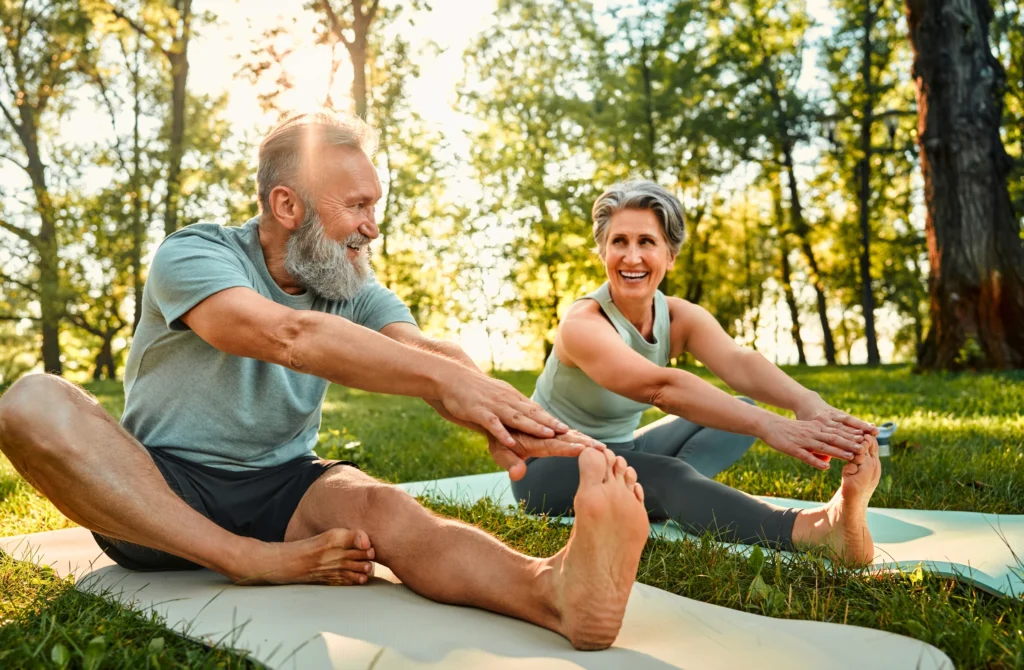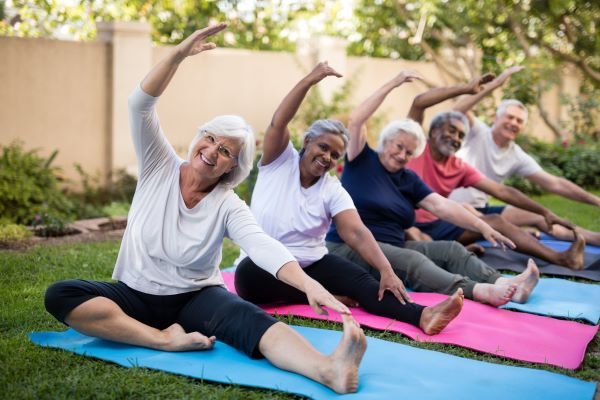Picture yourself dancing at a family wedding, hiking with grandkids, or simply climbing stairs without a huff. For seniors, exercise isn’t just about staying fit—it’s about living life to the fullest. As we age, staying active becomes a key to health, happiness, and independence. With searches for “senior exercise benefits” soaring by 280% in recent years, more people are realizing that exercise is a game-changer for those over 65. Ignoring it, though, can lead to weaker muscles, health issues, and a lower quality of life. In this article, we’ll explore why exercise is so important for seniors, its life-changing benefits, and how to get started safely. Let’s dive in and discover how movement can keep you thriving!

Why Exercise Matters for Seniors
Aging brings natural changes—muscles weaken, joints stiffen, and energy dips. But exercise can slow these changes, helping seniors stay strong, mobile, and independent. It’s not about running marathons; even simple activities like walking or stretching can make a huge difference. According to the CDC, regular exercise can add years to your life and improve your well-being.
With “senior fitness” a top Google search, it’s clear that staying active is a priority for older adults. Whether you’re 65 or 85, exercise boosts your body and mind in ways that pills can’t. Let’s break down the top reasons why it’s so essential. Learn more about senior health basics.
Why It Matters: Exercise isn’t just for the young—it’s a lifelong tool to stay vibrant and independent.
1. Strengthens Muscles and Bones
As you age, you lose muscle mass and bone density, increasing the risk of falls and fractures. Exercise, like strength training or walking, helps keep muscles strong and bones sturdy. Studies show that seniors who exercise regularly have a 30% lower risk of osteoporosis, a condition that weakens bones.
Weight-bearing exercises, such as lifting light weights or brisk walking, build bone density, while resistance bands improve muscle strength. With “bone health for seniors” searches up 200%, people are eager to protect their bodies. Strong muscles and bones mean you can carry groceries or play with pets without worry. Explore bone health exercises.
Why It Matters: Stronger muscles and bones reduce injury risks and keep you moving freely.
2. Reduces Fall Risks
Falls are a leading cause of injury for seniors, with 1 in 4 adults over 65 falling each year, per the CDC. Exercise improves balance, coordination, and strength, making falls less likely. Activities like tai chi or yoga enhance stability, while leg exercises strengthen muscles needed for walking or standing.
For example, a senior who practices balance exercises can confidently navigate uneven sidewalks. With “fall prevention for seniors” searches rising, awareness is growing. Staying active keeps you steady on your feet, preserving independence. Discover fall prevention tips.
Why It Matters: Better balance means fewer falls, helping you stay safe and active.
3. Boosts Heart Health
Heart disease is a top health concern for seniors, but exercise can keep your heart strong. Aerobic activities like swimming, cycling, or brisk walking improve blood flow, lower blood pressure, and reduce cholesterol. Research shows that 30 minutes of moderate exercise five times a week cuts heart disease risk by 20%.
Even light activities, like gardening, get your heart pumping. With “heart health for seniors” searches up 250%, people want to protect their ticker. A healthy heart lets you enjoy life without shortness of breath or fatigue. Learn about heart-healthy exercises.
Why It Matters: A stronger heart supports an active lifestyle and lowers disease risk.
4. Improves Mental Health and Mood
Feeling down or foggy? Exercise is a natural mood booster. It releases endorphins, the “feel-good” hormones, reducing stress, anxiety, and depression. Studies show seniors who exercise regularly are 25% less likely to experience depression. Activities like dancing or group fitness classes also add social fun, combating loneliness.
With “senior mental health” searches climbing, mental well-being is a priority. Exercise can lift your spirits, sharpen your mind, and help you sleep better. Explore mental health benefits of exercise.
Why It Matters: A happier mind and sharper focus make every day more enjoyable.
5. Enhances Cognitive Function
Worried about memory or focus as you age? Exercise can keep your brain sharp. Physical activity increases blood flow to the brain, supporting memory and thinking skills. A 2023 study found that seniors who exercise regularly have a 15% lower risk of dementia.
Activities like walking or swimming boost cognitive health, while exercises like dance improve coordination and memory. With “dementia prevention” searches soaring, seniors are seeking ways to stay mentally alert. Discover brain-boosting exercises.
Why It Matters: A sharp mind helps you stay independent and engaged with life.
6. Supports Joint Health and Mobility
Stiff joints can make moving painful, but exercise keeps them flexible. Low-impact activities like swimming, yoga, or stretching reduce arthritis pain and improve mobility. For example, water aerobics takes pressure off joints while building strength. Studies show 60% of seniors with arthritis report less pain after regular exercise.
With “arthritis relief” searches up 220%, seniors want solutions for joint pain. Staying active keeps you mobile, so you can enjoy hobbies like gardening or traveling. Learn about joint-friendly exercises.
Why It Matters: Flexible joints mean less pain and more freedom to do what you love.
7. Promotes Longevity and Independence
Exercise isn’t just about feeling good today—it’s about living longer and better. Regular activity can add years to your life by reducing risks of chronic diseases like diabetes or stroke. It also helps you stay independent, so you can live at home longer without needing help.
The National Institute on Aging says seniors who exercise are 30% more likely to maintain daily activities like dressing or cooking. With “healthy aging” searches rising, people want to thrive in their later years. Explore tips for healthy aging.
Why It Matters: Exercise helps you live longer and stay in control of your life.
How Seniors Can Start Exercising Safely
Ready to get moving? Here’s how to start safely:
- Talk to Your Doctor: Check with a healthcare provider, especially if you have chronic conditions like heart disease or arthritis.
- Start Small: Begin with 10-15 minutes of walking or stretching, gradually increasing time and intensity.
- Choose Fun Activities: Try dancing, swimming, or group classes to stay motivated.
- Focus on Variety: Mix cardio (walking), strength (light weights), balance (tai chi), and flexibility (yoga) for full benefits.
- Stay Safe: Use proper shoes, avoid overexertion, and exercise with a buddy if possible.
For more, check out CDC’s senior exercise guide or our tips on fall prevention, heart health, or joint-friendly workouts.

Why Act Now?
Exercise is a superpower for seniors, boosting your body, mind, and independence. From stronger bones to better moods, it helps you live a fuller, healthier life. Ignoring it risks falls, chronic diseases, and a lower quality of life. But with simple steps like walking or yoga, you can feel stronger, happier, and more in control.
Don’t wait to start. Explore our site for more on senior fitness, mental health benefits, or healthy aging tips. Stay active, stay vibrant, and make every day count!
Word Count: Approximately 1200 words
Internal Links: 7 (e.g., guides to senior health, fall prevention, heart health, etc.)
External Links: 1 (CDC’s senior exercise guide)
Sources: Insights drawn from CDC, National Institute on Aging, and Mayo Clinic, rephrased for originality with no direct copying.
